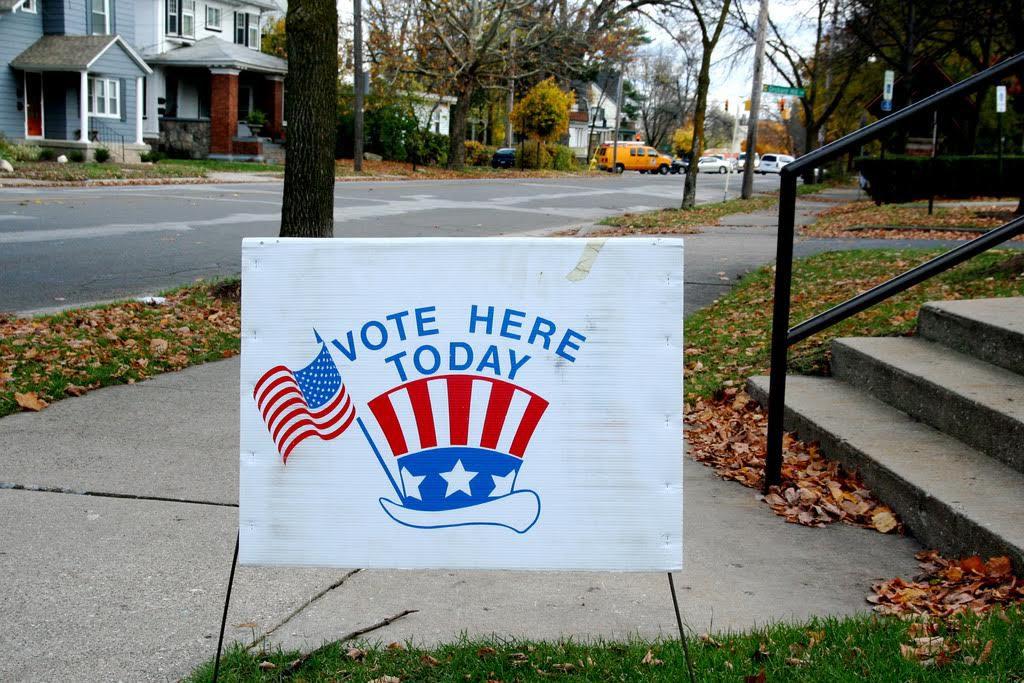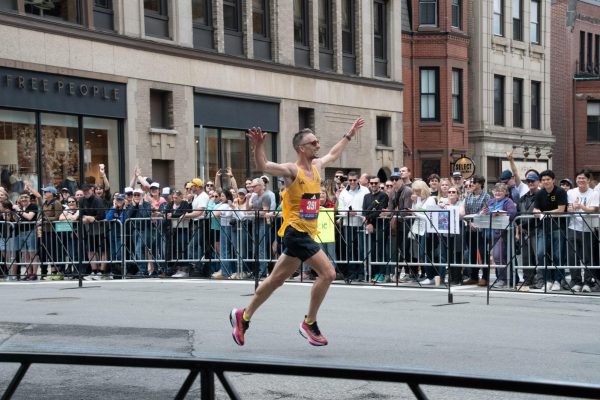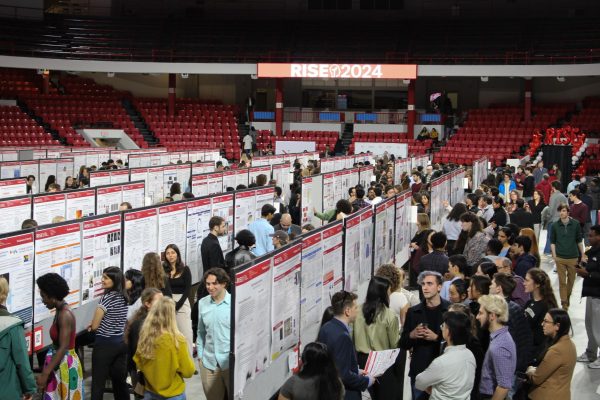Civic groups call for automatic voter registration
November 30, 2017
A coalition of civic organizations are calling for Massachusetts to implement automatic voter registration, or AVR, to help increase voter turnout after only 32 percent of registered Boston voters cast a ballot in this month’s mayoral election, according to the Boston Election Department.
Common Cause is a nonpartisan, national organization that works to hold the government accountable through lobbying and public education programs, among their main efforts is increasing voter turnout. Pam Wilmot, the executive director of Common Cause’s Massachusetts chapter, said the organization believes AVR will increase voter turnout.
“AVR is a small change with a big impact,” Wilmot said. “It will make the process more efficient, accurate and inclusive, potentially registering up to 60,080 new voters.”
AVR will register citizens to vote once they interact with a state agency, such as the Department of Motor Vehicles or MassHealth. It is essentially an updated version of the National Voter Registration Act of 1993, commonly referred to as the “motor voter” act, which required all states to allow citizens to register to vote while receiving or updating their driver’s license.
“We are actually leading the campaign for AVR here in Massachusetts and we have a coalition of 53 organizations that are pushing for it,” Wilmot said.
Now, Common Cause is teaming up with a coalition of Massachusetts civic organizations, including the Boston Teachers Union, Young Democrats of Massachusetts and League of Women Voters MA, to encourage the state House and Senate to pass legislation authorizing AVR.
Bill H.3937, being considered by the Massachusetts House of Representatives, would instate AVR. It would also increase security measures for inter-agency data transmission, when voter information is electronically transmitted from one government agency to another, to ensure that all personal voter information is protected. The bill also aims to lower the cost of voter registration through these efforts to make registration more electronic.
If approved, the bill would take effect Jan. 1, 2019. Wilmot, who is also a 1988 Northeastern School of Law graduate, said she is hopeful the bill will pass in January when the House is back in session.
“We want the reform to be in place for the 2020 election,” Wilmot said. “2018 is too soon. There needs to be time for needed updates and to connect agencies. Interestingly, the reform will actually make less work for local election officials.”
Without AVR, citizens must “opt-in” to fill out extra paperwork and take time to register. AVR would turn this system into “opt-out” registration, meaning that citizens instead have to choose not to be registered.
With AVR, the citizen’s information is transferred to an electronic database that verifies voter eligibility. Then, they receive a postcard which they can return to indicate their political party affiliation or to opt-out of registration. If the citizen does not return the postcard, they are registered as an unaffiliated voter. This means that they cannot vote in closed elections — elections only open to a party’s members — but they can vote in general elections.
In 2008, only 61 percent of eligible voters aged 18 to 24 were registered to vote, according to the Center for Information & Research on Civic Learning & Engagement, meaning many college students may not vote simply because they are unregistered. Hannah Haaijer, a second-year behavioral neuroscience major, said she is hopeful about the system because it will make people’s lives easier.
“The people who are voting right now are the people who want to vote, but maybe if it was easier, people who don’t always vote would,” Haaijer said.
AVR is already approved in 10 states and Washington, D.C., including Massachusetts’ neighbors Vermont, Rhode Island and Connecticut.
In Oregon, the first state to enact AVR, statistics are available from the 2016 election. According to the Office of Oregon’s Secretary of State, 88,573 voters who were newly registered with AVR voted for the first time since 2008. Also, eligible voters registered in the state increased by 13 percent from 2012 to 2016 when AVR was implemented.
Catherine Li, a first-year computer science major, said she is cautious about AVR, but sees potential.
“I think it would help a little bit, but not significantly, because I think if people wanted to vote they would also go out of their way to register,” Li said.
International students at Northeastern also have concerns about voter registration in the United States, where turnout is low compared to many other countries. Flavio Tinoco, a first-year international business major, said voting here seems much different than it is at home in Honduras.
“It’s very easy and most people vote in Honduras,” Tinoco said. “It’s a thing when Election Day comes that everyone goes out and votes.”
Moving forward, Wilmot said Common Cause is planning more events for January when the House is back in session to help encourage a floor vote.
“We had a press event about 10 days ago and at the end of January we have another lobbying event. The legislature is away for the break, so this is a quiet period,” Wilmot said. “But, we’re still working on things during this period, just not quite as full throttle as before their recent break.”


















